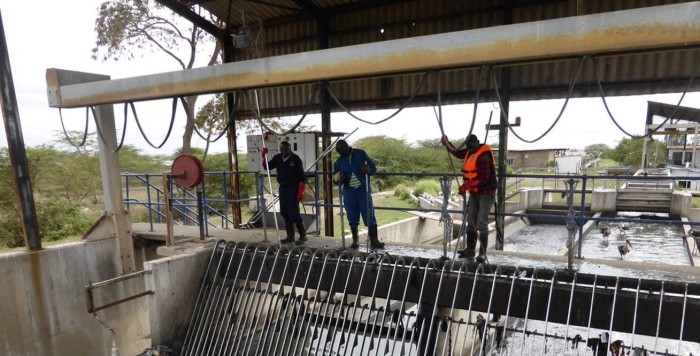In December 2020, a pilot project to monitor the circulation of coronavirus in sewage water collected in the city of Nairobi, Kenya has commenced. The pilot is jointly executed with KWR Water Research Institute, Waternet and Nairobi Metropolitan Services – Directorate of Health Services in collaboration with the International Livestock Research Institute (ILRI), Nairobi City Water and Sewerage Company (NCWSC). The project is co-funded by the NL Business department of FMO, via their COVID-19 response package to mitigate the impact of virus outbreak.
Monitoring to gain insight in the presence and circulation of the virus
In Kenya, knowledge about the prevalence of COVID-19 is limited and clinical surveillance has limited capacity. Therefore, monitoring the virus in sewage offers an opportunity to gain insight into the presence and spread of the virus in a specific catchment area.
KWR, a Dutch knowledge institute, has developed and demonstrated that sewage surveillance can be a sensitive tool to monitor the circulation of COVID-19 in communities (Medema et al., 2020). The approach relies on the fact that infected people will shed virus, in particular in faeces and has since been implemented in numerous countries around the world. Monitoring data provides information about the occurrence of the virus which can be used to gauge the situation, evaluate the effect of measures and detect insurgence of infections at an early stage.
Waternet (the public water utility of Amsterdam) is one of the partners involved in this early warning sewage surveillance system. Since the implementation of the method in the Netherlands, in February 2020, sewage surveillance is currently one of the pillars of the Dutch COVID-19 monitoring dashboard. Now, the same tool will be used in Nairobi to monitor the spread of the virus, as a cost effective complement to the regular COVID-19 testing programmes that are in place.

How does it work?
Ten sampling points have been selected throughout the city of Nairobi, one of which being the largest sewage treatment plant in the city, Dandora Estates Sewerage Treatment Plant. Samples upstream in neighbourhoods will be manually collected by NCWSC on a weekly basis and will be transported to the laboratories of ILRI where they will be tested using the analytical protocol developed by KWR. Promega and Anatech will supply the necessary consumables that are used for analysing the samples and provide data on the circulation of SARS-CoV2 in Nairobi. The resulting data will be both validated and compared to all relevant epidemiological data about the spread of COVID-19 (e.g. registered infections, hospitalizations).
Wastewater data will be collected and compared to the epidemiological data about the spread of COVID-19 in Nairobi to further interpret the observed trends and potential outbreaks in Nairobi at an early stage. An online platform will be developed (i.e. dashboard) where the data will be visualised to follow the developments of the spread of the virus and communicate it to the Nairobi Metropolitan Services and other relevant Kenyan authorities.
Performance improvement of public water utilities
The pilot project will continue for one year. If the pilot is successful, the monitoring programme can be extended to multiple locations across the county and even other major urban areas in the country.
The pilot fits well in World Waternet’s mission to help improve the performance of public water and wastewater utilities worldwide and aligns with its the current Water Operators’ Partnership under the WaterWorX programme with NCWSC.


